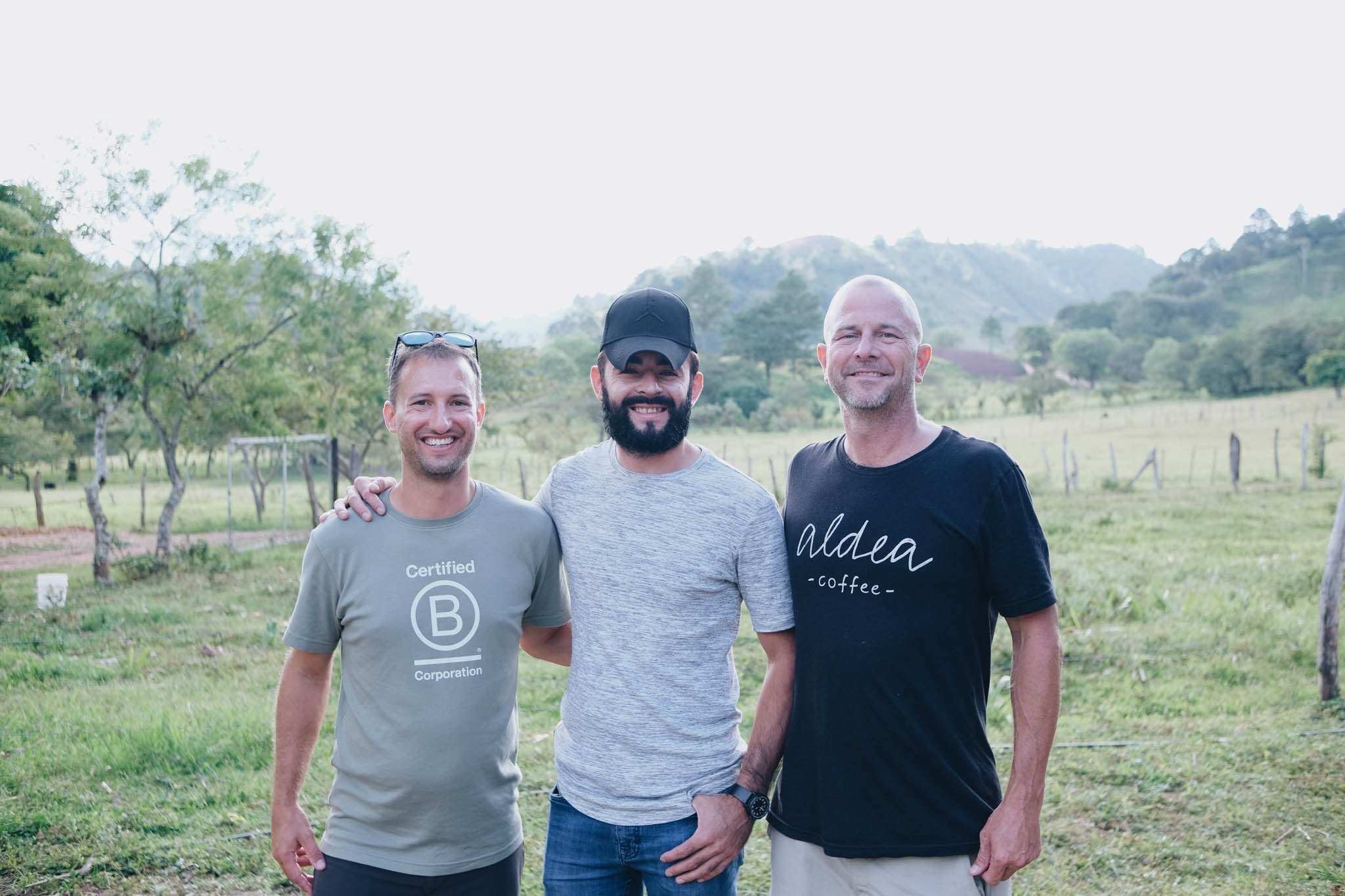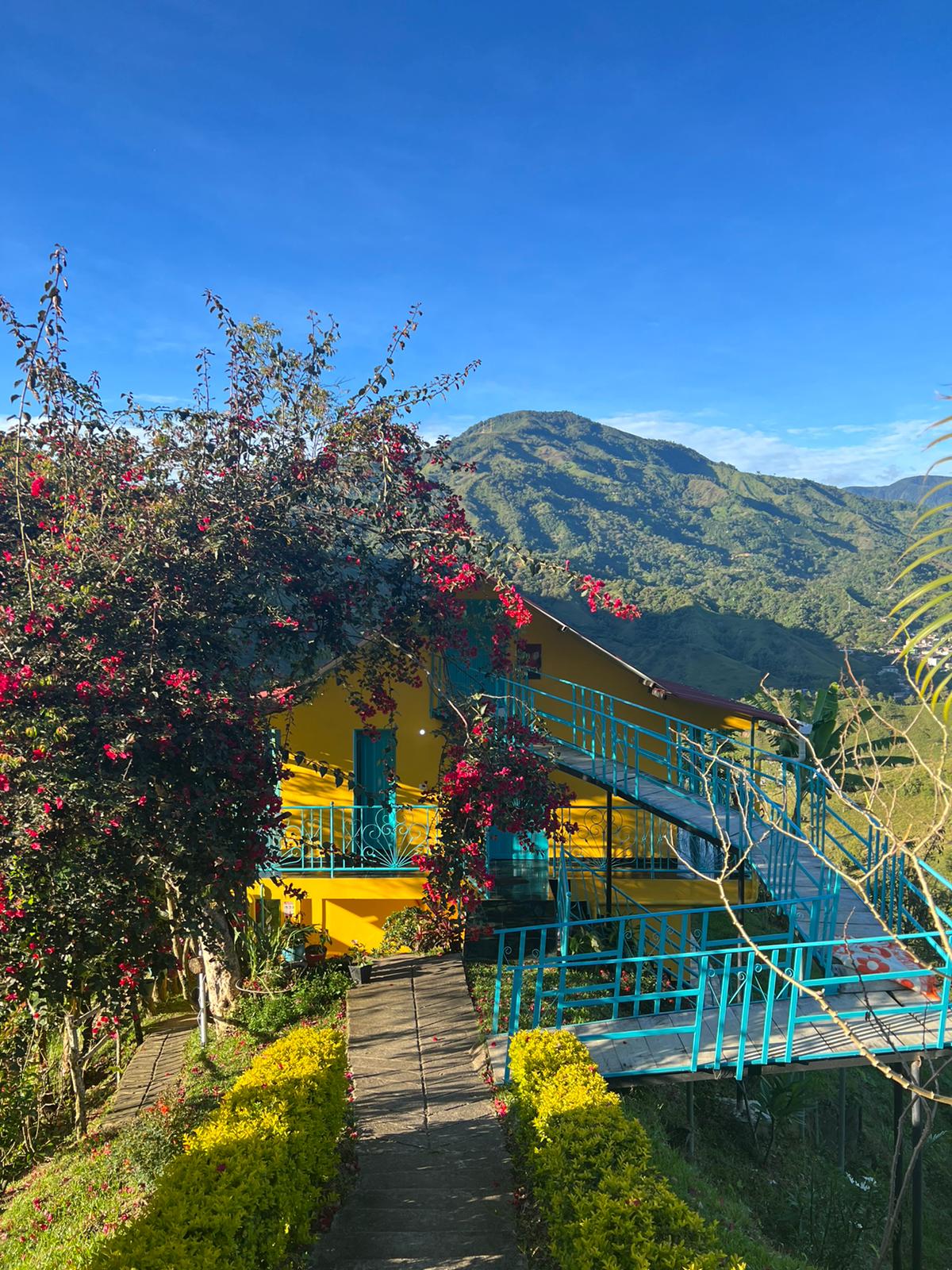
PURCHASE BAYRON'S COFFEE HERE >>

A quick briefing on coffee processing:
Immediately after the coffee cherries are harvested, they are taken directly to the beneficio to be processed. Here, they test the coffee to see the rate of possible defects that are present by floating the whole fruit in water. All “floaters” are separated from the denser, riper fruit and then the cherries are processed in one of two ways: washed or natural.
In the washed process, the coffee cherries are pulped (fruit is mechanically separated from the bean) before being placed in fermentation tanks where they are left to ferment for 24 hours in a large vat of clean water. The cherries are then rinsed of leftover debris (washed) and moved to solar dryers to “cure” and reduce the overall moisture content of the bean.
If a producer chooses to natural process aka “dry process” their coffee, the cherries are spread in a thin layer in solar dryers with the cascara (fruit) intact and left to dry in the sun. After a period of about four to six weeks of drying and turning the cherries, the fruit is mechanically removed from the seed (bean). This process requires significantly less water than washed processed coffees.
After one of these processing phases is done, the coffee goes to the dry mill in Santa Rosa, Honduras where the beans are rested, hulled, graded, and then finally prepared for export.

About Bayron
Bayron has been working in the coffee industry for four years and has been a partner of Aldea Development for three years. He is a recent graduate of Aldea’s Coffee Processing Training Program which teaches producers how to dry process (aka natural process) his coffee commercially. This process gives the final product a distinct fruity sweetness and heavier body due to the coffee bean’s extended contact with the fermenting pectin of the cascara (fruit).
Besides specialty coffee training, Aldea Development also provides producers like Bayron large solar dryers and raised beds, equipment that is necessary for natural processing in a climate like Honduras. This program and these resources has led to some of the first dry processed coffees in the La Union region are are part of why Bayron has chosen to work with us.
“I really enjoy the taste of my coffee as a dry process,” said Castellanos to the President of Aldea Development, Charlie Heins, referring to his natural processed coffee. Bayron keeps some of his naturals for his own enjoyment, and processes his personal coffee naturally, too. He said that we offer a “great price” for green coffee, and this is perhaps the main reason why they continue to sell their exceptional coffee to us.
What’s next for Bayron?
Bayron wishes to continue to improve his coffee fields and harvest and would love to keep working with Aldea.
Partnering with producers like Bayron is a dream for roasters. With such a unique, complex product from a producer who is pushing to learn and grow and take his coffee to another level, we can only feel lucky that we get to enjoy and share his coffee for years to come.
Keep reading to learn more about this year’s crop.

Bayron’s coffee, roasted
Bayron’s coffee is–you guessed it–dry processed. It’s sweet and fruity and ends with a balanced finish. The natural process adds a degree of smoothness to this coffee, allowing notes of blueberry and semi-sweet chocolate to linger a bit and soften its relative brightness. It is roasted medium to help balance the cup overall and pull out every bit of sweetness from the beans. This is a great coffee for newcomers to dry-processed coffees.
Like most dry processed coffees, Bayron’s coffee could stand to rest a week or more after it is roasted to achieve its peak flavors. Buy some now, check the roast date and then store it at room temperature away from the light until it is about 7-15 days old before unleashing this unique coffee with your favorite brewing method.
“Good things come to those who wait,” Abe Lincoln once said, I think.
If you’d like to purchase Bayron’s coffee, you can find it at either of our cafes or online at aldeacoffee.com.


